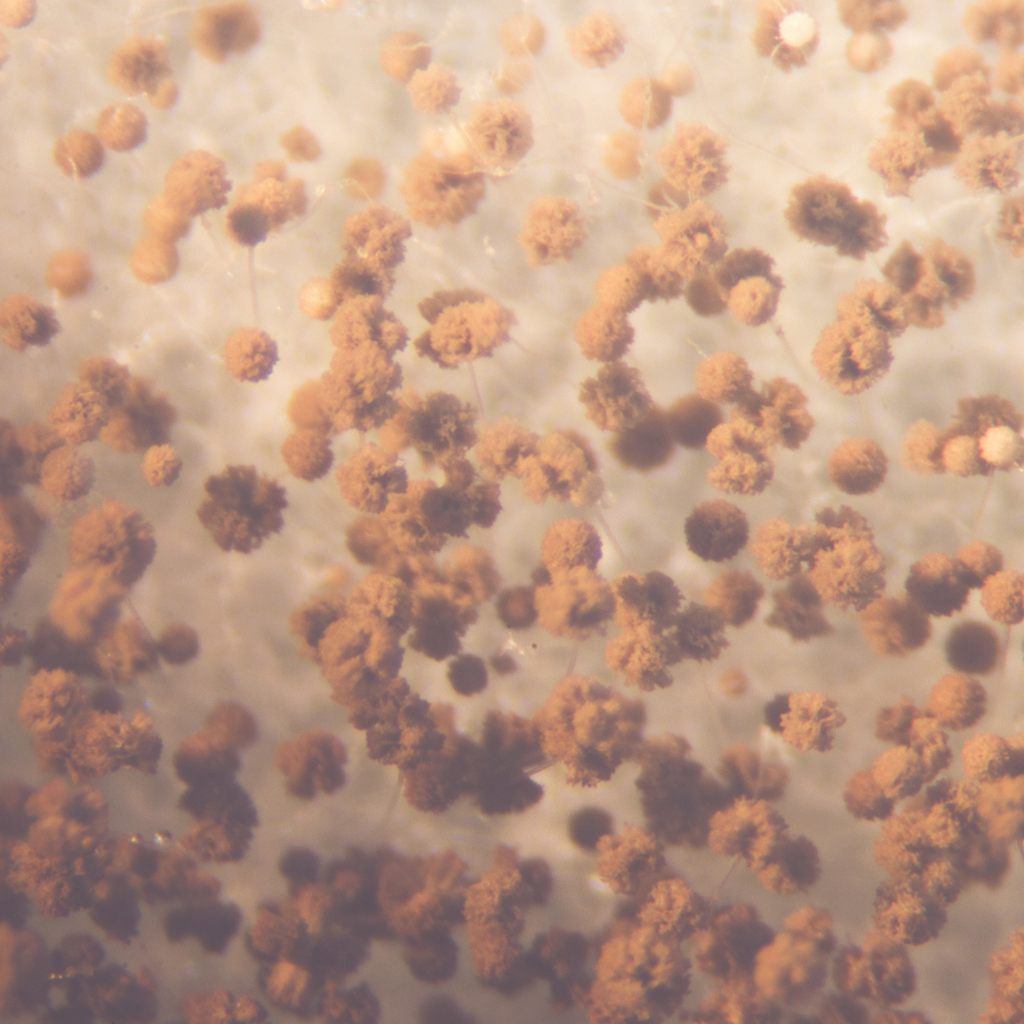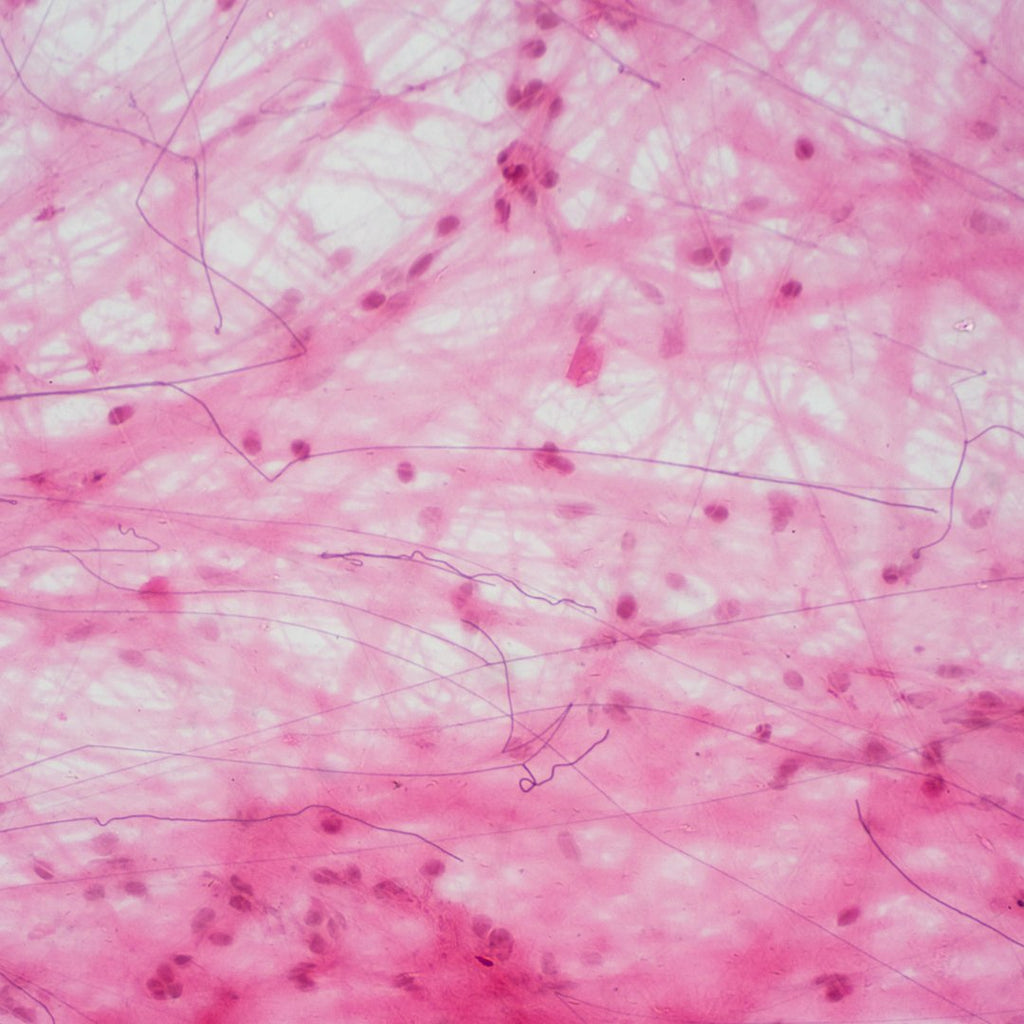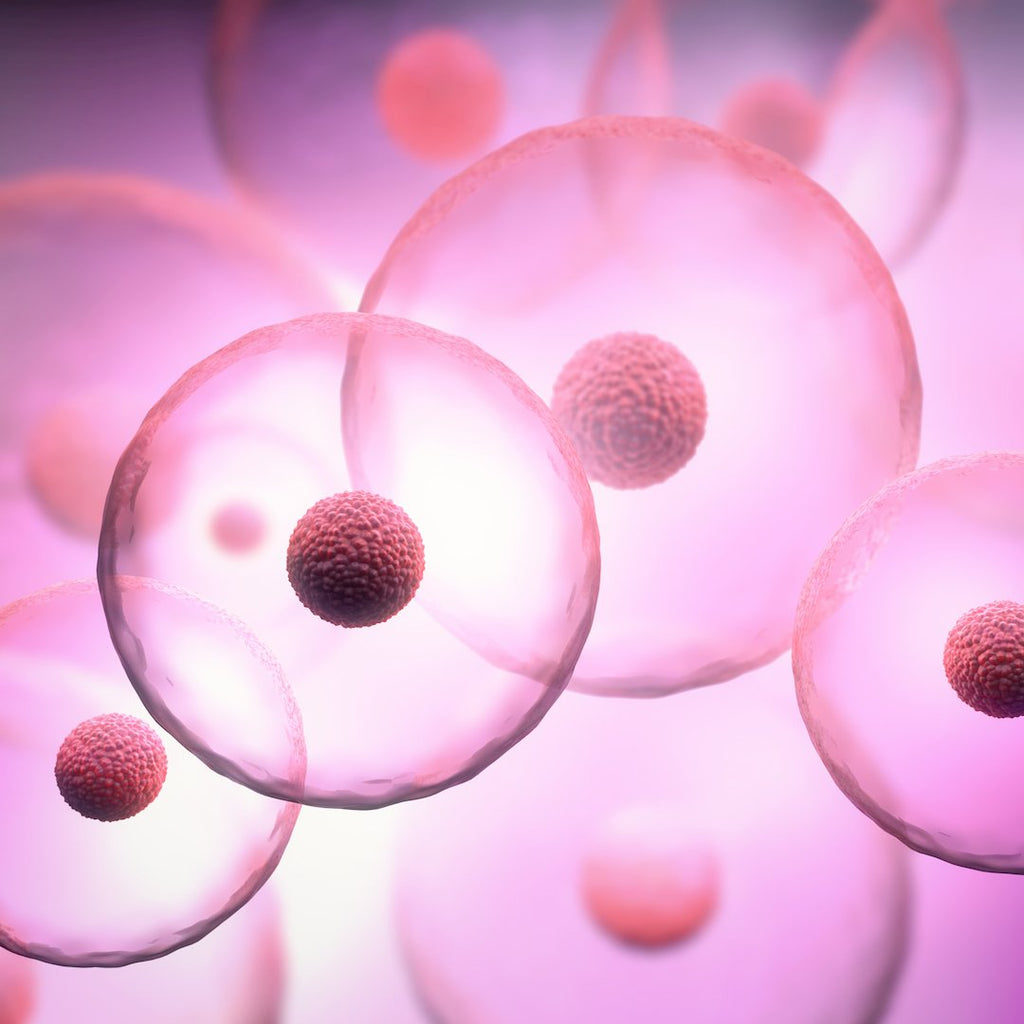Butterflies in your stomach, a racing heart beat and a heightened sense of awareness are all typical signs of anxiety, a completely healthy and normal reaction in certain situations, such as prior to a job interview or public speaking event. Though useful in the short-term, long-term feelings of worry and fear with no obvious cause can be a huge disruption to everyday life.
In clinic, anxiety is often overlooked as a nagging symptom, and is rarely someone’s main health complaint, yet it’s the most prevalent mental health condition. Anxiety can be completely overwhelming, however with little understanding for nutrition interventions making a difference, people rarely seek treatment in this area.
Signs, symptoms and severity of anxiety
An individual may not be aware they have ‘anxiety’ and may not label their symptoms as such, but they may be experiencing relentless feelings of stress and worry, with no reasonable cause. Signs of anxiety include feeling overwhelmed, feeling constantly stressed, worrying about social events, lacking ability to concentrate and not functioning well on a day-to-day basis. Often legitimate psychological stressors lead to an increase in stress hormones, but with no physical need for them.
Anxiety is often a symptom of other underlying problems, so may appear alongside other physical and psychological symptoms including heart palpitations, insomnia, irritability and restlessness.
There are several different types of anxiety disorders, including generalised anxiety disorder, characterised by excessive worry about normal life events with no clear reason. Obsessive compulsive disorder, social anxiety disorder, panic disorder and post traumatic disorder are other common types of anxiety. Phobias, fears and panic attacks are often present amongst these various anxiety disorders and can range from mildly disruptive to social isolation, depression and even feelings of suicide.
Causes of anxiety
The actual cause of anxiety is very complex and differs from one individual to another. Anxiety can manifest itself as a result of high stress levels, traumatic life events both in childhood and adulthood, thyroid issues, dysfunctional serotonin, excessive consumption of alcohol, caffeine or sugar, and hormone imbalances.
While anxiety may feel like a disease of its own, there is usually a root cause as to why someone may feel this way. Feelings of anxiety is the body’s way of giving an indication that something is imbalanced.
HPA axis, cortisol and adrenaline
Some of the most common causes of anxiety are due to HPA (hypothalamic-pituitary-adrenal) axis dysfunction, compromised gut health and nutrient deficiencies.
HPA axis hyperarousal can be the result of modern-day stressors ranging from high blood sugar, to allergies and toxin exposure. The HPA axis links the three systems, the hypothalamus, the pituitary gland and the adrenal gland – a link between the brain and the endocrine system to regulate hormone production including stress hormones and mood regulation.
Adrenal gland hormones cortisol and adrenaline are the most relevant to feelings of stress anxiety, and when the HPA axis is not functioning properly, these hormones can run high, creating a state of anxiety. Blood sugar imbalance, dehydration, gut dysbiosis, inflammation, nutrient deficiencies and lack of sleep can all disrupt the HPA axis functionality.
If you suspect stress hormones may be high, a simple saliva adrenal stress test can measure cortisol levels at different times throughout the day.
Neurotransmitters
Neurotransmitters, the brain chemical messengers, have a significant impact on anxiety. Some are stimulating, while others are relaxing. GABA is a powerful and calming neurotransmitter, whereas glutamate is excitatory. Anxiety is believed to be the result of an imbalance of these, amongst other neurotransmitters.
Benzodiazepine medication is often used to enhance the effect of GABA, a neurotransmitter that reduces the activity of neurons that cause anxiety.
Serotonin is a neurotransmitter offering feelings of wellbeing and happiness. As the majority of serotonin is produced in the gut, digestive health can significantly impact levels of this neurotransmitter. Animal studies have shown that bacteria in the gut can modify serotonin production (1).
Selective serotonin reuptake inhibitor (SSRI) medication has shown to correct HPA axis hyperactivity (2). SSRIs help to keep more of the serotonin the brain is making, in circulation. They do not, however, increase the brain’s supply of serotonin. SSRIs are used to correct low serotonin levels in the brain and are often used to treat anxiety disorders and depression.
Hormones
Hormone medication such as the birth control pill may lead to HPA dysregulation, adrenal issues, and inflammation. Introducing synthetic oestrogen triggers the body’s inflammatory response (3), and the adrenal glands respond to inflammation by producing cortisol to suppress it. This reaction would be fine in the short term, however with daily intake of oestrogen, the continuous cortisol response may hinder the function of the HPA axis long term.
Inflammation
Other sources of inflammation in the body may also disrupt the HPA axis by putting the body in a state of stress. Inflammation can be caused by dietary and lifestyle habits such as high blood sugar levels, fatty acid imbalances and lack of sleep. Chronic diseases and infections can also induce a state of inflammation on the body.
Chronic inflammation can do damage to your body by creating a vicious cycle of anxiety and stress. This stress and inflammation can lead to exacerbated anxiety in the long term.
Controlling anxiety with diet and lifestyle
Anti-inflammatory diet
As inflammation can disrupt the HPA axis and increase cortisol levels, it is key to have a good base for the diet including plenty of anti-inflammatory foods.
An anti-inflammatory diet should be rich in omega-3 fatty acids predominantly from fish, and include a wide range of antioxidant rich fruits and vegetables. As these foods are also rich in vitamin C, this will directly support the adrenal glands as an added bonus. Omega-3 EPA and DHA are also essential for cell membrane health and therefore neurotransmission in neuronal cells.
We recommend: Pharmepa Maintain, an ultra-pure, pharmaceutical grade fish oil supplement providing an optimal ratio of 750 mg EPA, 250 mg DHA and 60 mg GLA to support the health of cell membranes.
Keeping the diet low in pro-inflammatory refined carbohydrate foods will also help with blood sugar balance. As anxiety symptoms are associated with suboptimal glycaemic control in diabetics (4), this should be considered.
Protein
As neurotransmitters are made in the body from proteins, such as tryptophan being the precursor to serotonin, it’s important to ensure protein intake is adequate. A level of 1g protein per kg body weight would be more than enough for most active adults.
Probiotics
As digestive issues can impair absorption of nutrients and an imbalance of bacteria in the gut can reduce the ability to produce serotonin, probiotic supplements and prebiotic foods may be beneficial.
Specific nutrients
There are several supplements which can help to modulate neurotransmitters relating to anxiety and stress, in particular GABA.
Magnesium in combination with vitamin B6 and zinc help to support enzymes required to synthesise neurotransmitters such as dopamine and GABA, promoting relaxation and good quality sleep. Vitamin B6 combined with magnesium has shown to reduce anxiety-related PMS symptoms (5).
L-Theanine is an amino acid naturally found in green tea and is a potent and natural calming active ingredient shown to reduce physical and mental stress (6). L-theanine also acts as a relaxant by interacting with GABA.
We recommend: MindCare BALANCE, an advanced nutrition supplement containing magnesium glycinate, zinc citrate, vitamin B6 in its most advanced form, L-Theanine amongst many other key nutrients to support symptoms of anxiety.
5-HTP is a compound made naturally in the body from the amino acid tryptophan, found in protein-rich foods such as turkey. 5-HTP can be supplemented and is directly converted to serotonin in the body, supporting good mood and feelings of happiness.
Adaptogenic herbs
Once the diet is balanced and nutrient levels are sufficient, the next stage would be to consider adaptogens, a group of herbs with an ability to reduce stress and enhance adrenal function.
Valerian root is known for its relaxing effects. Animal studies suggest that the mechanism of action is due to activating GABA (7) which has shown to improve both sleep duration and quality (8).
Ashwaganda is a widely researched herb shown to have anti-inflammatory and antioxidant properties. Numerous placebo-controlled studies have shown this herb to be effective in reducing perceived stress and anxiety (9).
Alcohol, caffeine and toxins
Substances such as caffeine, alcohol, nicotine, pesticides, antidepressants, and other medication may deplete serotonin and other neurotransmitter levels. Abstinence of alcohol is associated with a lower risk of anxiety and depression, so should be avoided if anxiety is severe (10).
Caffeine may be tolerated better by some individuals due to genetic predisposition affecting caffeine metabolism but, on the whole, caffeine increases adrenaline and epinephrine which may exacerbate anxiety. A great alternative to coffee would be green tea, containing less caffeine and also providing L-theanine to increase GABA.
Lifestyle relaxation techniques
A calm environment and relaxing practices incorporated into everyday life can make a huge difference to stress levels and anxiety.
Mindfulness meditation allows the mind to reach a deep state of relaxation. It has recently become more widely practised with the support of apps guiding through controlled breathing techniques. This type of meditation has shown to have a beneficial effect on anxiety symptoms, and may also improve stress reactivity (1).
Simply spending more time outdoors in nature can also help the body reach a relaxed state (12). Fresh air combined with natural surroundings create a sense of calm.
Exercise in many different forms, both aerobic and anaerobic, have shown repeatedly to improve anxiety related symptoms (13). If someone is particularly stressed or overwhelmed, they may wish to consider gentler forms of exercise such as yoga, pilates and swimming.
Sleep
Getting adequate sleep is key for adrenal health and managing cortisol levels, which in turn have an impact on anxiety. As high evening cortisol levels are common in those who have anxiety, improving the circadian rhythm with light exposure may help. Increasing natural light exposure in the morning and restricting blue light in the evening may increase the hormone melatonin in the evening, therefore improving sleep quality.
References
- DeBoer, Lindsey B et al. “Exploring Exercise as an Avenue for the Treatment of Anxiety Disorders.” Expert review of neurotherapeutics 12.8 (2012): 1011–1022. PMC. Web. 9 Oct. 2018.
- Lenze, Eric J. et al. “Elevated Cortisol in Older Adults with Generalized Anxiety Disorder Is Reduced by Treatment: A Placebo-Controlled Evaluation of Escitalopram.” The American journal of geriatric psychiatry : official journal of the American Association for Geriatric Psychiatry 19.5 (2011): 482–490. PMC. Web. 9 Oct. 2018.
- Divani, Afshin A. et al. “Effect of Oral and Vaginal Hormonal Contraceptives on Inflammatory Blood Biomarkers.” Mediators of Inflammation (2015): 379501. PMC. Web. 9 Oct. 2018.
- Herzer, Michele, and Korey K. Hood. “Anxiety Symptoms in Adolescents with Type 1 Diabetes: Association with Blood Glucose Monitoring and Glycemic Control.” Journal of Pediatric Psychology 35.4 (2010): 415–425. PMC. Web. 9 Oct. 2018.
- De Souza MC. et al. “A synergistic effect of a daily supplement for 1 month of 200 mg magnesium plus 50 mg vitamin B6 for the relief of anxiety-related premenstrual symptoms: a randomized, double-blind, crossover study.” Journal of Womens Health & Gender-Based Medicine (2000), 9 (2): 131-9.
- Kimura K. et al. “L-Theanine reduces psychological and physiological stress responses.” Biological psychology (2007). 74 (1): 39-45
- Kakehashi A. et al. “Valerian inhibits rat hepatocarcinogenesis by activating GABA(A) receptor-mediated signaling.” PLoS One (2014). 24;9 (11): e113610
- Sahu S. et al. “Valeriana wallichii root extract improves sleep quality and modulates brain monoamine level in rats.” Phytomedicine (2012). 19 (10): 924-9
- Pratte, Morgan A. et al. “An Alternative Treatment for Anxiety: A Systematic Review of Human Trial Results Reported for the Ayurvedic Herb Ashwagandha (Withania Somnifera).” Journal of Alternative and Complementary Medicine 20.12 (2014): 901–908. PMC. Web. 9 Oct. 2018.
- Haynes JC. et al. “Alcohol consumption as a risk factor for anxiety and depression: results from the longitudinal follow-up of the National Psychiatric Morbidity Survey.” The British journal of psychiatry (2005). 187: 544-51
- Hoge, Elizabeth A. et al. “Randomized Controlled Trial of Mindfulness Meditation for Generalized Anxiety Disorder: Effects on Anxiety and Stress Reactivity.” The Journal of clinical psychiatry 74.8 (2013): 786–792. PMC. Web. 9 Oct. 2018.
- Berto R. “The role of nature in coping with psycho-physiological stress: a literature review on restorativeness.” Behavioural Sciences (2014) 21; 4 (4): 394-409






